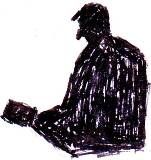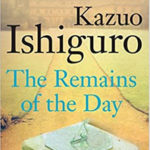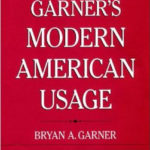 Reading Chaucer's Poems: A Guided Selection
Reading Chaucer's Poems: A Guided Selection
Faber & Faber

The volume contains extracts from most of Chaucer's major works along with short introductions to the poems and adequate glossaries with word meanings appended at the end of each chapter.
My Rating: ★★★★☆
Geoffrey Chaucer’s poems are not easily accessible to the modern readers. His language presents an immediate difficulty which can only be overcome by hard work and perseverance. However, the reader’s effort mustn’t end there. Any great work of art is composed for all subsequent time. But the assumptions made in it about man and his universe are rooted in contemporaneity and do not coincide with the reader’s own time. So, behind the obvious problem of finding the meaning of words lies a much serious problem of what concepts and ideas are represented by them. This is necessary so we understand what Chaucer said rather than making him parrot our own preconceived ideas.
Thus, it is impossible for the modern reader to acquire a taste of Chaucer’s poetry without a good annotated text with word references and commentaries as well as copious notes on the linguistic and literary contexts of the composition. Since the weight of this additional explanatory material is heavy, it is difficult to give in a single volume a comprehensive view of Chaucer’s art with reference to his poems. Excellent annotated editions of individual poems exist but they are of no help to the readers who search for a general introduction to Chaucer’s poems. Bernard O’Donoghue’s Reading Chaucer’s Poems fills that gap.
The volume contains extracts from most of Chaucer’s major works along with short introductions to the poems and adequate glossaries with word meanings appended at the end of each chapter. Different extracted sections of the same poem are connected with commentaries that explain the context. However, there are no further annotations or references and one wonders if the word references would be enough for a new reader to understand what Chaucer means. The book begins with a delightful and well-written introduction on Chaucer, the poet. This introductory chapter gives a brief biographical description of the poet and then explains the qualities of his writing. It gives a succinct and yet reasonably comprehensive account of Chaucer’s art — his capacity to express ‘general truths’, his penchant for creating characters as well as caricatures, his wit and humour, his role as an entertainer, his mastery of the narrative art.
Bernard O’Donoghue admits that it is not easy to ‘present him (Chaucer) in manageable extracts in his original language to modern readers’ and justifies his selections as well as omissions. Chaucer’s poems are presented in this volume following a rough chronology of their composition. O’Donoghue’s aim is to give the readers ‘an impression of the poet’s development’. His selections comprising many of Chaucer’s major poems will give the new readers of Chaucer an eclectic view of the poet and one hopes that this volume would nudge the readers ahead to discover more of Chaucer. It should also have provided them with suggestions about the resources to delve deeper into a poet credited with not only helping the English language to germinate but who, because of his ‘unsurpassed vividness of characterization’, is a worthy predecessor of such later greats as Ben Jonson, Shakespeare, Pope or Charles Dickens. However, there is no suggestion of further reading or a bibliography.
The present reviewer is privileged to read a galley copy of the book thanks to Netgalley. Since the word-notes are placed at chapter ends, the reader has to move back and forth between the text and the gloss. This is inconvenient in an e-book reader but may not be so in a printed book. It would have helped if the word-notes are printed as footnotes or on the facing page. The galley copy is not free from printer’s devils either (e.g. ‘more brazen that (sic.) Iago or Edmund’, p. 127). Such errors should no longer be there in the published version of the book.
General readers will find in Bernard O’Donoghue’s Reading Chaucer’s Poems a fine introduction to Chaucer. It may be considered as a ‘First Reader’ on Chaucer. Those who would need to read Chaucer in greater detail may then go to annotated editions of individual poems or The Complete Works of Geoffrey Chaucer (Ed. F. N. Robinson), the standard edition of the works of the poet with copious and helpful notes and references. This volume is no longer in print but may be found in a good library.
[O’Donoghue, Bernard; Reading Chaucer’s Poems: A Guided Selection; Faber & Faber; London; 2015]
























